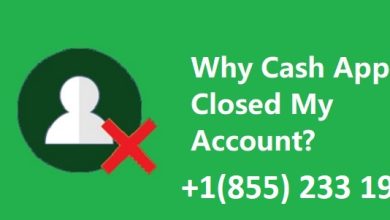What could be solution if you are struck in debt situations?

It’s just one of those things that happen without warning or even when you feel powerless to stop it. It is, nonetheless, feasible to remain debt-free. To prevent sliding into a debt trap, use these measures to get free from the Debt situations
You’re not alone if you’re anxious about money. At this difficult time, many people from all walks of life, from all over the world, are struggling with financial difficulty and uncertainty.. Financial worry is one of the most prevalent stressors in modern life, whether it stems from a loss of job, growing debt, unanticipated spending, or a combination of reasons.
An American Psychological Association (APA) research indicated that 72 percent of Americans are anxious about money at least some of the time, even before the global coronavirus outbreak and its economic consequences. As a result of the recent economic troubles, even more of us are now facing financial hardships.
1. Don’t buy it if you can’t afford it without a credit card.
Living under the idea that you can afford things you don’t have the money to afford is one of the most harmful aspects of using a credit card. If you can’t buy anything in cash, you can’t afford it with a card, according to one solid rule.
2. Have an emergency fund in case things go wrong.
For those “just-in-case” scenarios, emergency savings are critical. It’s a good idea to set away at least six months’ worth of income for an emergency fund. This will cover your expenses if you lose your job, become injured and unable to work, or need money for an unexpected but critical expense.
3. Pay off your credit card debt completely.
Paying up your credit card amount as you go is the easiest method to keep your spending under control. So, if you use your credit card to make a transaction, say to earn rewards, pay the next day before life gets in the way.
4. Remove the wants and concentrate on the requirements.
There’s always room in your personal budget to eliminate wasteful expenditure. This could mean only going to your favorite restaurant’s “Taco Tuesday” once a month or limiting your internet buying. The more you cut out the wants and spend exclusively on the necessities, the better off you’ll be financial.
5. With a budget, make your Debt situations better.
You can better track where your money is going and where you can afford to spend it if you budget out your monthly costs. Calculate how much you should put into savings, your 401(k), and how much money you have leftover to spend on needs each month. So, if you ever need to make a significant cut in your spending, you’ll know exactly where to start. Money Manager, for example, is a useful online program that can assist you with budgeting by automating some of the processes.
For external help, the use of the personal Finance Application can help in managing the solution better.
6. Cash advances should not be made with a credit card.
If you need to use your credit card to have cash on hand, it’s a sign that you’re misusing your money. Not only is the APR larger than it is for conventional purchases, but you will almost certainly be charged a fee as well.
7. You should keep the number of cards you have to a minimum.
Multiple credit cards imply multiple payments and more interest charges. This is a set-up for debt consolidation in the future if you can’t manage your credit cards responsibly for debt situations. The more charges on each card amass, the easier it is to lose track of your spending and payments.
8. The master expense sheet.
Make sure to keep track of your costs on a monthly basis in a document that you can edit. That way, if you have many accounts and credit cards, you can make sure that you pay off all of them on time. Money Manager can help you receive a complete picture of your finances, including different bank accounts, credit cards, loans, and investment accounts.
9. In the event of a pay raise.
If you get a pay raise, live on the lesser earnings you had previously and put the extra money in savings. After all, you’ve come a long way from your prior salary; invest the extra cash in a way that will make them work harder for you.
10. To save money, collect coupons for better debt situations.
When it comes to your budget, groceries fall into the “must-have” category. By using coupons to reduce the amount of money you have to spend on those necessities, you can free up money that was previously unavailable. Saving the additional cash will help you develop bigger debt situations.
Limiting oneself is the most difficult aspect of attempting to avoid debt. Spending has become one of the most common temptations in today’s environment. These tactics will allow you to reduce future debt situations while still leaving the place in your budget for yourself.
In conclusion
Financial difficulties, like any other type of high stress, can negatively affect your mental and physical health, relationships, and overall quality of life. Sleep, self-esteem, and energy levels can all be affected by financial issues. It might make you angry, ashamed, or terrified; it can cause friction and arguments with your loved ones; it can exacerbate pain and mood swings, and it can even put you at risk for melancholy and anxiety.
You may adopt unhealthy coping behaviors such as drinking, drug misuse, or gambling to cope with your stress. Financial stress might potentially lead to suicidal thoughts or actions in the worst-case scenario. However, no matter how bad your situation looks to be, there is help available. You may discover a route out of the financial quagmire, reduce stress, and take control of your finances—and your life—by confronting your money difficulties head-on.






